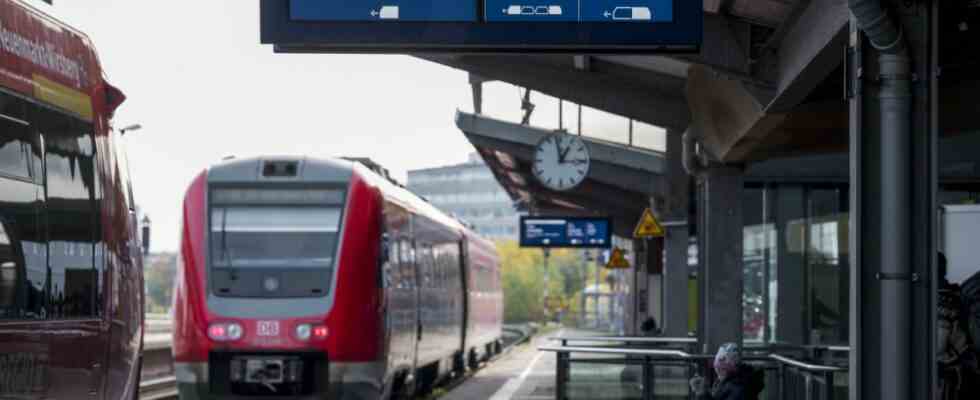Is the electrification of the Franconian-Saxony Magistrale in Bavaria yet to come? According to a report by the federal government’s “Acceleration Commission for Rail,” this hope is burgeoning. Their goal was a concept of how the stagnant railway expansion in Germany can progress more quickly. And accordingly, in the “interest in the common good”, evaluations of the benefit-cost ratio in the case of electrification measures on existing routes should no longer be decisive. The commission’s recommendations are “substantive and pragmatic. Bavaria now expects the federal government to implement a lot of this in a timely manner and not disappear back into the drawer,” said Bavaria’s Transport Minister Christian Bernreiter (CSU) at the request of the SZ. The point is particularly important “that electrification should be declared as desirable in terms of climate and social policy and should therefore no longer be exposed to time-consuming discussions about profitability in the future”. According to Bernreiter, it cannot be the case that overhead lines for important routes such as the Franconian-Saxony Magistral have so far failed because electrification is relatively complex, for example due to the topography.
The electrification of the route from Nuremberg via Marktredwitz to Hof or Schirnding (district of Wunsiedel) was actually intended to close the electrification gap to Saxony and the Czech Republic. So the end of diesel locomotive operation, due to electricity from the overhead line. Most recently, however, the federal government referred to the calculated cost-benefit factor, which meant the end of the plans for at least part of the route in Bavarian territory. In Saxony, meanwhile, electrification has already taken place. In view of the project, which has since been shut down, there was also a cross-state resolution by Bernreiter, including with district administrators and mayors of Upper and Middle Franconia and the northern Upper Palatinate.
After the Commission had presented it, the transport policy spokesman for the SPD regional group in the Bundestag, Jan Plobner (Nuremberg Land), welcomed the report – in particular the planned omission of the benefit-cost ratio in 2023, partly also in the case of needs planning that had already been evaluated. This makes it possible to advance the Franconian-Saxony Magistrale and the associated expansion of the Nuremberg S-Bahn at greater speed. “Now it is important to ensure that the proposals become concrete as quickly as possible,” said Plobner, adding that the FDP-led Federal Ministry of Transport would be responsible for this. So far, it’s just expert advice. Markus Büchler, transport politician for the Greens in the Landtag, was enthusiastic: while the CSU continues to dream of even more asphalt, the traffic lights in Berlin are actually releasing the brakes on rail traffic over large areas. The change would be “equal to a small revolution”. And it is good news for further electrification projects, for example to Furth im Wald, which “are also freed from the sword of Damocles of supposed inefficiency”.

